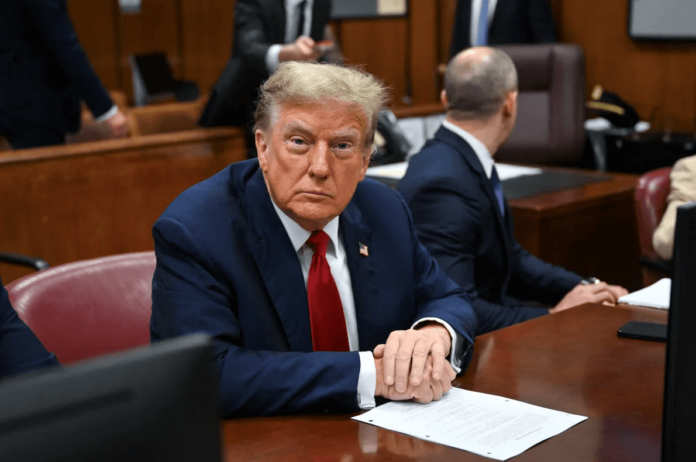Former President Donald Trump, currently embroiled in a New York trial over allegations of concealing hush money payments, has once again sparked controversy by positioning himself as a martyr for the First Amendment. After repeatedly violating a court-imposed gag order, Trump suggests that defying further sanctions, including potential jail time, would be a “sacrifice” to protect constitutional rights.
Justice Juan Merchan, overseeing Trump’s trial, has sternly warned the former president that his persistent breaches of the gag order—intended to prevent jury tampering or witness intimidation—could lead to imprisonment. Despite the imposition of fines proving ineffective, Trump remains defiant, telling reporters, “Our Constitution is much more important than jail. It’s not even close. I’ll do that sacrifice any day.”
Trump’s dramatic response came after the judge’s candid admission of the gravity of potentially jailing a former president, who might also be a future candidate. However, Trump’s portrayal of the situation paints a misleading picture of his free speech rights being infringed. Legal experts and the judge himself have clarified that gag orders are constitutional tools used to ensure the fairness of a trial, crucial for protecting the legal process rather than suppressing free speech.
Despite his claims, Trump’s actions post-hearing suggest a recognition of the gag order’s significance. He quickly deleted a social media post discussing potential witnesses, hinting at either his or his legal team’s understanding of the potential consequences of his actions.
This narrative of victimization plays well with Trump’s base, as evidenced by his campaign emails claiming persecution by a “liberal judge.” Yet, this strategy does not resonate as effectively with the broader American electorate. Recent polls reflect a growing concern over Trump’s conduct during the trial. According to CNN, 42% of Americans view his behavior as “mostly inappropriate.” Furthermore, polling from USA Today/Suffolk University reveals that 65% of Americans anticipate a guilty verdict, while an Economist/YouGov poll shows that more voters believe he should be found guilty than not.
Trump’s continued framing of his defiance as a constitutional crusade rather than acknowledgment of legal boundaries not only threatens the integrity of his trial but also risks broader public backlash. As the legal proceedings advance, the former president’s gamble on positioning himself as a defender of free speech might end up alienating more voters than it galvanizes, especially among those who view adherence to judicial processes as a cornerstone of lawful and ethical leadership.



